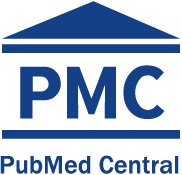Publication ethics policies
If any ethical misconduct is detected during the editorial process or after publication, the RPMESP will take the necessary measures based on the recommendations of the Committee on Publication Ethics (COPE) (www.publicationethics.org), Word Association Medical Editors (WAME), International Committee of Medical Journal Editors (ICMJE) and Council of Science Editors. These measures imply: rejection or retraction of the article, non-acceptance of future articles submitted to the RPMESP, notification to other journals, as well as communication to the pertinent authorities (institution of origin, institution that financed the study, professional associations and ethics committees).
The most frequent types of ethical misconduct in publication are plagiarism, inadequate authorship and redundant publication.
Plagiarism: All publication proposals will be subject to review by a text duplication detection program. Detection procedures will be conducted according to internal INS guidelines. Proposals with high similarity percentage will not be accepted.
Redundant (duplicate and fragmented) publication: The RPMESP does not accept duplicate publication. If redundant publication is detected and verified, the authors will be subject to the guidelines established by COPE.
Inadequate authorship: Authors are responsible for their participation and the order in which they appear in the article; the journal does not interfere in these aspects.
The corresponding author should carefully verify that all authors are included in the manuscript in the appropriate order, and it is recommended that this information not be modified in each corrected version requested by the editor, until publication.
If a change of authorship is requested, RPMESP will proceed according to the recommendations of the Committee on Publication Ethics (COPE) (https://publicationethics.org/).
In case of detecting an inclusion, exclusion or change in the order of authorship, RPMESP will stop the editorial process of the manuscript until the authors clarify this situation and comply with the procedures and documentation requested by the Editorial Committee.
RPMESP recognizes as authors those who meet the “authorship criteria” recognized by the International Committee of Medical Journal Editors (ICMJE) (https://www.icmje.org/) where authors are considered to be those who meet the following requirements:
1) Contribute significantly to the conception or design of the manuscript, or to the collection, analysis or interpretation of the data.
2) Write or critically review the content of the manuscript or critically review the content of the manuscript.
3) Approve the final version to be published.
4) Assume responsibility for all aspects of the manuscript, to ensure that issues related to the accuracy or completeness of any part of the manuscript will be adequately investigated and resolved.
In order to be considered as the author of a research to be published, the previous four conditions must be complied with. In turn, this should be stated in the “Authors’ Contribution” section. On the other hand, the ICMJE specifies that only participation in fund raising, data collection or general supervision of the research group does not justify authorship and should be listed in the “Acknowledgements” section.

























